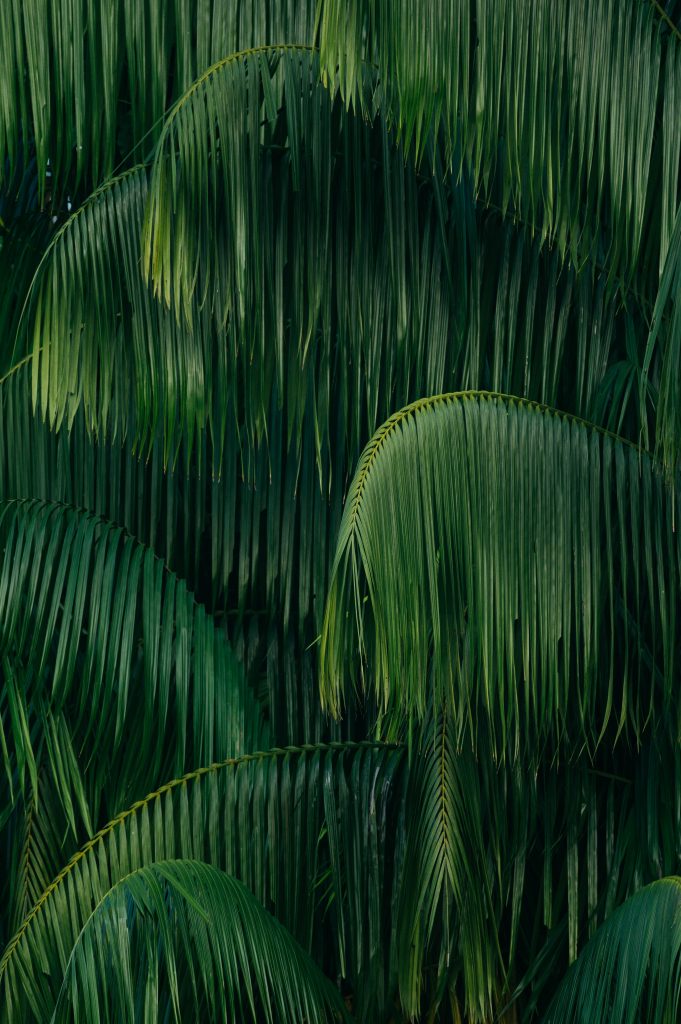
Special Feature: Troy Osaki
April 14, 2022 | Uncategorized

My Beloved Leaves Her Job Mid-September
She’s chosen, instead, to organize
………….full-time for our country
……………………..we, once, hand-dug holes
to plant rice in. We wear,
………….often, our grandparents’
……………………..clothes—a sun-faded cap,
her lola’s overcoat. Shoulders,
………….padded. The smell of Manila
……………………..traffic from years ago…………stuck
to wool. She asks her closest friend
………….in the office to not believe
……………………..what’ll be said of her, soon.
The Philippine palace,
………….its anti-terrorist task force.
……………………..An auntie at Seafood City.
In Jenilee’s backyard,
………….two worn-out lawnmowers.
……………………..We stand at the end of a day
-long meeting. Look at the last
………….of her garden, a summer bush.
……………………..My beloved snips the few flowers
left. Holds a handful of stems
………….the way she would my hair.
……………………..Places each in a cup of water
around our comrade’s home.
………….Outside the front door, we face
……………………..the street. The lit porch is bright.
…………
…………
The Summer We Plant Bitter Melon Endlessly
We pile
………….big landlords
in a hole
…………full of their own
pesos.
…………Bury them.
A farmer,
…………once, landless,
grows
…………bitter melon
on top,
…………chops
the bloomed
…………stems,
& feeds
…………our country.
…………
…………
I Say Goodbye & Organize in the Philippines
…………After Melissa Roxas
I leave for the countryside. Lay my face
on a banana leaf. Listen, shirtless, to my comrades
talk about Marx. We sweat. Wear tsinelas
yearlong—mud, sun struck, hardened on our heels.
We plant calabasa in a field, while in another
field, soldiers stomp on stalks of rice. Look for us—
instead, find a Cup of Noodles box flattened
into a handheld fan. I’ve never known a person
the way I’ve known our own when taken—
a crushed skull, brains gone, one eye missing.
What’s left isn’t how we remember them.
Maybe an overbite or a bob haircut,
but never the packaging tape rolled around
their body to keep bones attached. Never
the rope burns covering their wrists. The plastic
wrap or tarp they’re carried in. Their torso
torn open—see-through. Flies filling their mouths
like rainwater. I sit on the side of a cliff.
Watch as a hauling truck drives toward an unfinished
dam. In the air, the sound of my comrade tapping
her canteen, summers ago, before she’s found.
Legs, shattered. Her head split open, spilling
into a pond. The deepest end drowning in her
name. O comrade, I didn’t have a country
…………to come home to until we met.
..
Troy Osaki has published poems in the Margins, Muzzle Magazine, Poetry Northwest, and elsewhere. A three-time grand slam poetry champion, he has earned fellowships from Kundiman, Hugo House, and the Jack Straw Cultural Center. He thanks Geffrey Davis and his community for believing in his work.
………
From Special Features Guest Editor Geffrey Davis:
These features came together during a fracturing of attention that seems at once unprecedented and (now) every-day. As such, I found myself feeling deeply grateful for the sense of greater direction and connection provided by this editorial celebration of emerging writers, not to mention the fact that I discovered two new lights on the literary horizon. Arianne True weaves language and imagery into almost palimpsest-like poems that mirror the numinous flexing of lived (which is to say layered) identity. I admire how suggestively she wields formal order and disorder on the page. True’s work does so much to confirm poetry’s ability to fit both the desire and the danger of belonging into a shared breathing. Troy Osaki crafts kinetic portraitures that weigh and worry what abides. His poems also showcase a skill for shaping syntax and space into statement. Osaki excels at balancing a dearness for figures and landscapes with an awareness of the risks and uncertainties that they face. Because the wealth of those announcing the readiness of their voices is vast and inspiring, while wandering for these writers I leaned heavily on our poetry collectives, which do tremendous work to gather folks against marginalization, isolation, and underrepresentation: among them, CantoMundo, Cave Canem, Institute of American Indian Arts (IAIA), Kundiman, Lambda Literary, and Radius of Arab American Writers (RAWI). In addition to sharpening my memory of the transformations that I experienced myself as a fellow searching for poetic footing, visiting these creative homes built around literary belonging deepened a general faith in our ability to dream new gatherings into being. We have a bright future of poetic witnessing ahead, and I am so honored to cast some specific literary light onto these talented writers.
